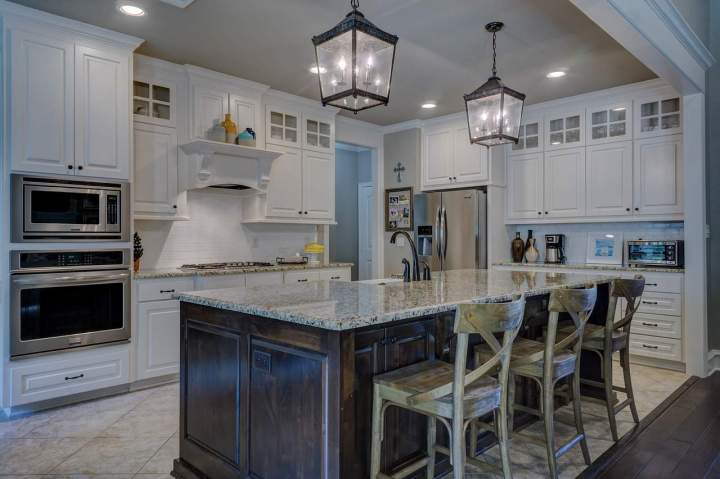Choosing the best countertops for your kitchen
Countertops Linkeo / August 21, 2025

Understanding Countertop Materials
Natural Stone
Natural stone countertops, such as granite and marble, offer a timeless elegance and durability. Each slab is unique, providing a distinctive look that can elevate your kitchen’s style.
- Granite : Known for its strength and heat resistance, granite is a popular choice. It requires sealing to prevent staining but is relatively low-maintenance overall.
- Marble : While beautiful, marble is softer and more porous, making it susceptible to scratches and stains. It’s ideal for baking areas due to its cool surface but requires more care.
Engineered Stone
Engineered stone, like quartz, combines natural stone with resins to create a non-porous material. This option is highly durable, easy to maintain, and available in a wide range of colors and patterns.
- Quartz : It resists scratches and stains, making it an excellent choice for busy kitchens. Unlike natural stone, quartz does not require sealing, which simplifies maintenance.
Wood
Wood countertops offer a warm, inviting aesthetic. They can be customized to fit your kitchen's design, but they do require regular maintenance to prevent water damage and scratches.
- Butcher Block : This type of wood countertop is perfect for food preparation and can be sanded down to remove scratches. However, it should be oiled regularly to maintain its appearance.
Laminate
Laminate countertops are an economical option with various designs, including imitations of natural stone. They are lightweight, easy to clean, and resistant to stains, but they can be less durable than other materials.
Evaluating Practical Considerations
Durability
When selecting a countertop, consider its durability based on your kitchen habits. If you often cook or entertain, a more resilient material like granite or quartz may be ideal. On the other hand, if your kitchen sees limited use, a laminate finish could suffice.
Maintenance
Maintenance needs vary significantly between materials. Natural stones require sealing and careful cleaning, while engineered stones and laminates are generally easier to care for. Assess your willingness to maintain the countertop to find the best fit.
Budget
Your budget will heavily influence your choice. Natural stones tend to be more expensive, while laminate options provide cost-effective solutions. It's essential to balance quality and affordability without compromising on the features you desire.
Aesthetic Appeal
Color and Style
Countertops contribute to your kitchen's overall design. Choose a color and style that complements your cabinetry and flooring. Neutral tones can create a timeless look, while bold colors can serve as a statement feature.
Texture
The texture of your countertop can also impact the kitchen's feel. Smooth surfaces offer a sleek, modern look, while textured or honed finishes can add warmth and character.
Conclusion
Choosing the best countertops for your kitchen involves considering a variety of factors, including material durability, maintenance, budget, and aesthetic appeal. By understanding the characteristics of different materials and evaluating your lifestyle needs, you can select countertops that not only enhance your kitchen's functionality but also reflect your personal style. Whether you opt for the elegance of natural stone, the ease of engineered surfaces, or the warmth of wood, the right choice will transform your kitchen into a space you'll love for years to come.
